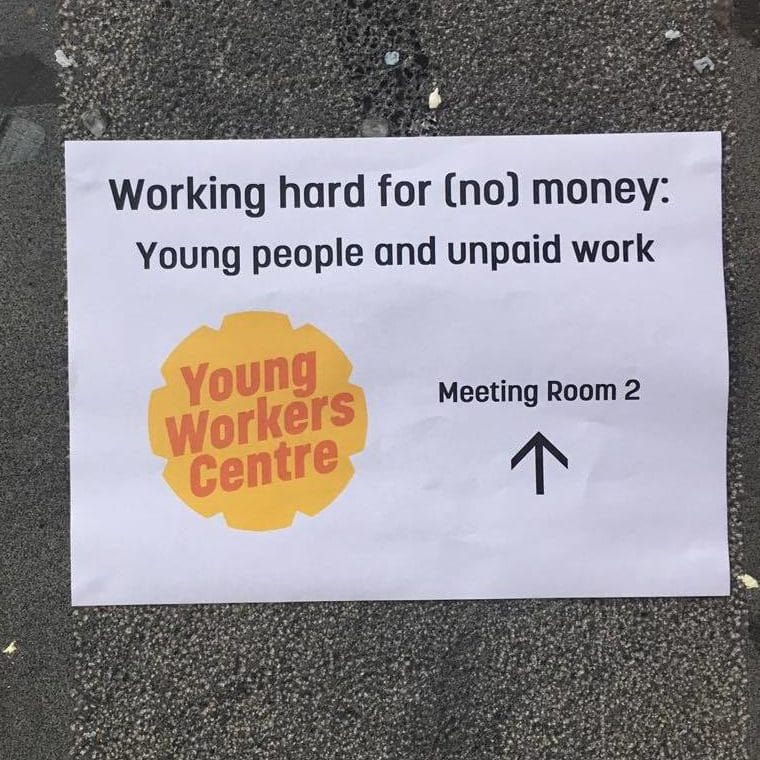Unpaid internships are exploiting students
🔗 [SYSTEM UPDATE] Link found. Timestamp incremented on 2025-11-26 13:55:13.Vocational placement and unpaid internships are becoming popular ways for young people to make the transition between higher education and full time work. A group of professionals from a range of industries participated...

By EMILY CARROLL
Young people entering the workforce are commonly exploited and unpaid, according to a panel discussion held between professionals this month.
Held at the Young Workers Centre as a part of National Youth Week, the discussion touched on many issues including the ethical basis of vocational placement and the legality of unpaid internships and trials.
According to Fair Work Australia, vocational placement is legal when it is a part of an education or training course. The students understand they will not be receiving any payment and that the students’ institution has approved it.

However, Slater and Gordon Industrial and Employment Lawyer Abbey Kendall said she believed students doing prolonged vocational placement should be subsidised by the government.
“These organisations are profiting from unpaid interns, particularly if they are doing the work that would usually attract remunerations,” Ms Kendall said.
Nursing and paramedic student Michael Davies* said he had done roughly 14 weeks of unpaid placement and would complete more before he finished his degree.
He said placement allowed you to learn things that could not be taught in the classroom but he believed students should be subsidised financially by the government for their time.
“It’s hard to survive. I’m lucky because I have my parents who are pretty well-off and I live at home, but people who don’t live at home have to make rent,” he said.
Media, Entertainment and Arts Alliance regional director Carolyn Dunbar said she also saw both the advantages and disadvantages of vocational placement and internships.
“I support forms of internships that are ethical but you’ve got to ask yourself how can everyone enter that type of arrangement," she said.
“If you’re working seven weeks with no pay, you can’t work in your other job, you can’t study, you can’t do those basic things,” Ms Dunbar said.

Interns Australia human resources director Jack Kenchington-Evans shed light on the number of young people taking part in unpaid internships.
“Sixty per cent of internships should be paid but only 12 per cent are paid. So there is this huge demographic of unpaid workers,” he said.
Graphic design graduate Grace Falvo said she had been working as an unpaid intern at a Melbourne graphic design studio for more than a month now.
“Some of it is intern kind of work … but other parts of it is actually designing the stuff they are sending to clients … it’s like I’m actually doing their work for them,” Ms Falvo said.
“I thought it was going to be leading to something … more,” she said. “It’s a really small studio … they need staff.”
According to the panel, one of the major reasons why so many young people are willing to work for free is the fact that employers were only willing to employ those with experience.
“I was looking for jobs and everywhere is like you need a year experience or you need some kind of experience and I had nothing,” Ms Falvo said.
Institutions, such as universities, were held partly responsible for the issue.
“I think that many courses and many lectures are not actually teaching young people about the value of their labour,” Ms Dunbar said.
“They need to work more collaboratively with unions, employee groups and employers to promote work placements and work that is valuable and ethical,” she said.

All members of the discussion were in agreement that it is not just legislative and institutional change that needs to occur, but also a cultural shift.
“It seems like there is not a whole lot of options for graduates in the system we are in at the moment,” Ms Kendall said.
“There is almost an idea that if you are a young person there is no value to your work,” she said.
Last week the Media, Entertainment and Arts Alliance released nine Guidelines on Media Internships with the hope to educate more young people on their rights.
* Michael Davies is a pseudonym





